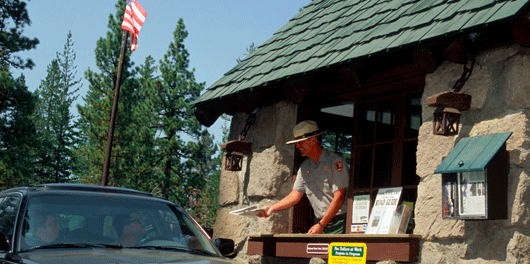To provide observations and information on the emerging fields of landscape scale conservation, heritage preservation, and sustainable community development.
Newsletter
Stay up-to-date with the latest nature, culture and community news.
We won’t spam you or share your information. Newsletters are sent approximately 10 times a year. Unsubscribe at any time.

Places and People in Trouble
Can America’s small cities be saved? Practioners in the fields of historic preservation, parks and recreation, and community development across the country have tried to tackle this problem. The problem runs wide and deep. For example, in Pennsylvania over 30 municipalities, almost all of which could be characterized as small cities, have been designated financially distressed. All of these places have a similar litany of problems – declining population and tax revenue, high pension and health care costs, a large inventory of blighted or tax-exempt properties, and heavy burden of municipal debt. Recent opinion pieces in the New York Times and the Washington Post have highlighted the issue, now what? Read more.

From the Archives: Urban Recreation and Greenline Parks Capture Attention in 1975
The mid 1970s proved to be a pivotal moment in the history of large landscape conservation. The funding boom of the sixties had come to an end, but the political influence of the environmental movement still held sway in many state capitols and in Washington, D.C. The administration of President Gerald Ford sought to cut back on federal investments in conservation, especially in cities, while members of Congress pushed for increases or – at the very least – preservation of the funding status quo. A document from the era, drafted by Charles Little of the Congressional Research Service, captures these tensions and is worth a read.

Culture/Nature Journey: New Delhi India
There is growing recognition of the interconnected character of culture and nature and the need for a more holistic approach to address the most urgent issues facing our planet – climate change, urbanization, and the transformations wrought by globalization. The recent Scientific Symposium at the 19th ICOMOS Triennial General Assembly in Delhi (December 11-15, 2017) continued the journey begun at last year’s World Conservation Congress in Hawai’i to find points intersection between the two fields. The discussion focused on such topics as the Connecting Practice initiative , the challenges of agriculture and rural landscapes, and the role of indigenous communities.

Latest Updates: Federal Government and Large Landscapes
It is getting harder and harder to keep track of all the news involving federal government action on landscape conservation issues. The past few weeks have been especially overwhelming with each day (and sometimes each hour!) bringing a new headline or controversy. Drilling in Alaska, new fees at National Park Service units, and potential changes to National Monument designations are just a few of the issues to catch our attention.

Half Earth: E.O. Wilson sparks the planet’s largest conservation effort
On October 23, 2017 conservationists gathered at National Geographic Headquarters for an event called “Half Earth Day” held six months after Earth Day in April.

Places and People in Trouble
Can America’s small cities be saved? Practioners in the fields of historic preservation, parks and recreation, and community development across the country have tried to tackle this problem. The problem runs wide and deep. For example, in Pennsylvania over 30 municipalities, almost all of which could be characterized as small cities, have been designated financially distressed. All of these places have a similar litany of problems – declining population and tax revenue, high pension and health care costs, a large inventory of blighted or tax-exempt properties, and heavy burden of municipal debt. Recent opinion pieces in the New York Times and the Washington Post have highlighted the issue, now what? Read more.

From the Archives: Urban Recreation and Greenline Parks Capture Attention in 1975
The mid 1970s proved to be a pivotal moment in the history of large landscape conservation. The funding boom of the sixties had come to an end, but the political influence of the environmental movement still held sway in many state capitols and in Washington, D.C. The administration of President Gerald Ford sought to cut back on federal investments in conservation, especially in cities, while members of Congress pushed for increases or – at the very least – preservation of the funding status quo. A document from the era, drafted by Charles Little of the Congressional Research Service, captures these tensions and is worth a read.

Culture/Nature Journey: New Delhi India
There is growing recognition of the interconnected character of culture and nature and the need for a more holistic approach to address the most urgent issues facing our planet – climate change, urbanization, and the transformations wrought by globalization. The recent Scientific Symposium at the 19th ICOMOS Triennial General Assembly in Delhi (December 11-15, 2017) continued the journey begun at last year’s World Conservation Congress in Hawai’i to find points intersection between the two fields. The discussion focused on such topics as the Connecting Practice initiative , the challenges of agriculture and rural landscapes, and the role of indigenous communities.

Latest Updates: Federal Government and Large Landscapes
It is getting harder and harder to keep track of all the news involving federal government action on landscape conservation issues. The past few weeks have been especially overwhelming with each day (and sometimes each hour!) bringing a new headline or controversy. Drilling in Alaska, new fees at National Park Service units, and potential changes to National Monument designations are just a few of the issues to catch our attention.

Half Earth: E.O. Wilson sparks the planet’s largest conservation effort
On October 23, 2017 conservationists gathered at National Geographic Headquarters for an event called “Half Earth Day” held six months after Earth Day in April.


